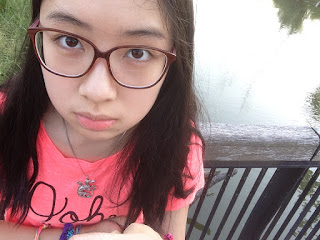Traffic Jam
If it hadn’t been for the traffic jam
I might never have noticed
the mist hanging low above the cornfield
a sunken cloud
the nebulous haze of unbroken sleep
pierced only by the golden
cylinders of sunshine
and faint red glow of taillights -- they who,
among Nature’s lazy morning slumber,
have long awoken and long
slipped into the rhythm
of growing impatience.
Hesitantly
You say my name hesitantly
as if tasting a drink,
rolling it around your tongue
and swallowing delicately.
You’re wearing your friendly mask,
every smiling muscle in your face
trembling halfway, like
balancing the light switch between on
and off.
And so I do the same, we’re
two sides of a mirror
colliding, falling through.
Could I but decipher
the contours of your raw
skin behind your mask? for
my nose strains
to catch the subtle
smell of defeat.
August
August
is when new year’s resolutions
start to peel away
and the squeaky-shine voice
of conscience takes over.
August
is when you’ve outgrown your old
skin and try to stitch
another one back together.
August
is friends and strangers
is friends and strangers
switching roles
a film of frost on
every word.
August
is a balancing act,
a fiery maroon
coaxing dying embers.
August
is when mistakes and sweet
remembrances pulse back and
linger like
a crooked arabesque.
Okay so I'm done with that whole kiss-up-to-Mrs-Leitsch thing (but I actually mean it).
I don't remember which poems "Traffic Jam" and "Hesitantly" were responses to; I think I might have done a free write. "Traffic Jam", obviously, addresses the conflict between nature and human activity, which has been an increasingly common theme in my poems. In the poem, I sort of lament the fact that humans are constantly looking for a more fast-paced lifestyle, while failing to see the beauty in their natural surroundings. I paid a lot of attention to my diction (I just love playing around with words >_<) and imagery: "golden cylinders of sunshine" and "the nebulous haze of unbroken sleep" are two lines that I'm somewhat proud of.
The second poem, "Hesitantly", was kind of a weird experience for me; I wrote it in response to passing someone in the school hallway whom I used to have rivalry and tension with and I hadn't seen in a while. It brought up some... interesting ideas, because I wasn't sure what the person thought of me now that almost two years had passed and I wasn't sure whether he/she had let go of what had happened. It came out of kind of a weird thought process, but I liked the similes that I tried to weave into it, like "as if tasting a drink, rolling it around your tongue and swallowing delicately".
"August" was a response to the poem, also titled "August", that we read in class. I really worked on my imagery and metaphors in this piece. I tried to use repetition in an artful way, being very careful not to make it too monotonous or predictable (because that can happen soooo easily -_-). I also played around with my line breaks (wow the poem looks really narrow xD) and switched lines in the middle of phrases where they sounded kind of out-of-place and unnatural, trying to mirror the disconnected thoughts of teenagers going back to school in the fall. Last year, I did a lot of things that I now regret, so I wrote this poem in response to how those incidents made me feel and where they have now landed me.
"August" was a response to the poem, also titled "August", that we read in class. I really worked on my imagery and metaphors in this piece. I tried to use repetition in an artful way, being very careful not to make it too monotonous or predictable (because that can happen soooo easily -_-). I also played around with my line breaks (wow the poem looks really narrow xD) and switched lines in the middle of phrases where they sounded kind of out-of-place and unnatural, trying to mirror the disconnected thoughts of teenagers going back to school in the fall. Last year, I did a lot of things that I now regret, so I wrote this poem in response to how those incidents made me feel and where they have now landed me.




